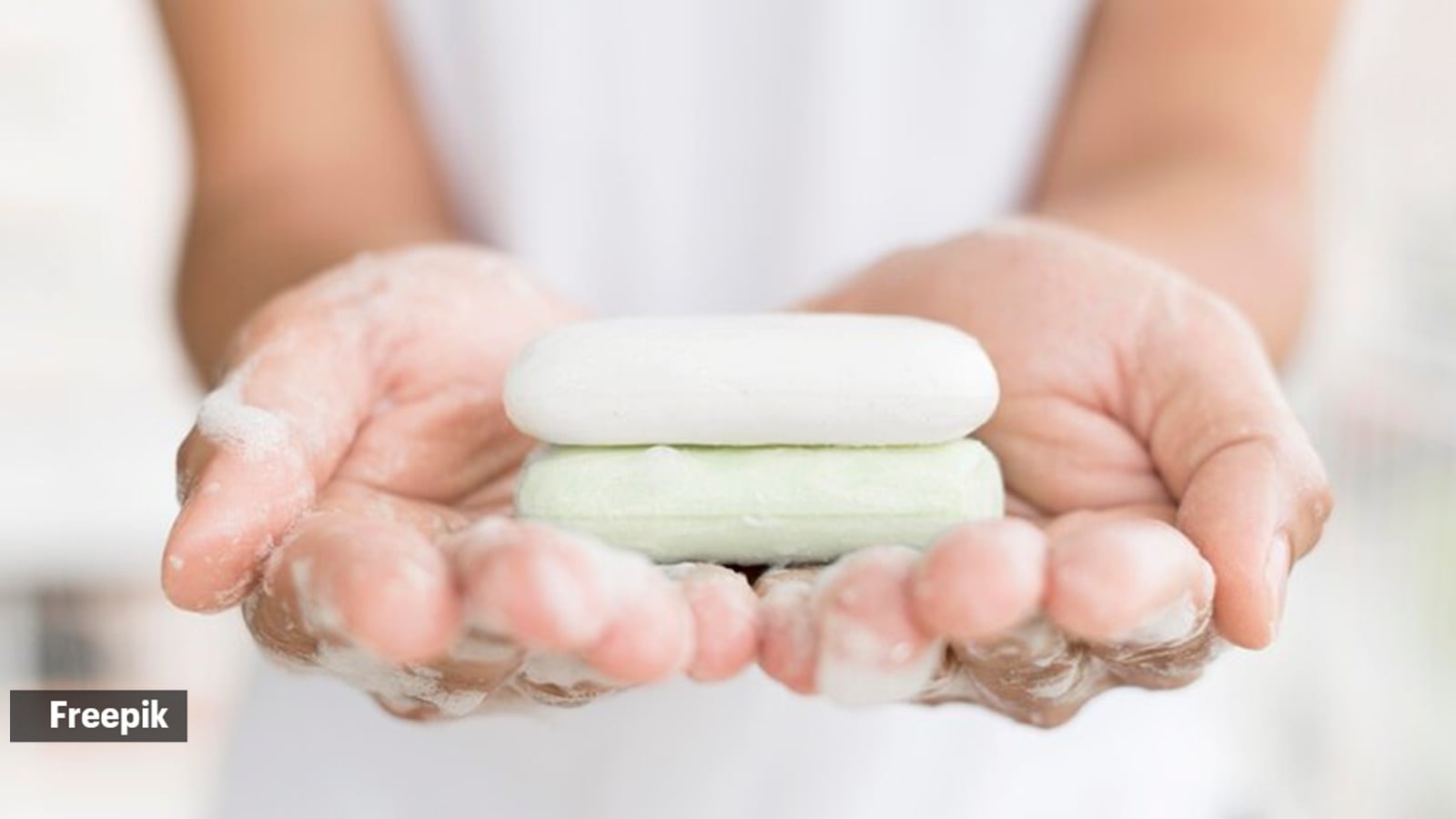Cancer is one of the most painful conditions with no one set of symptoms, treatment, or precautionary measures. Creating awareness about the same is content creator and cancer survivor Susana Demore, who listed things she would never use anymore around the house after being diagnosed with the disease while she was pregnant. “The truth is that my diagnosis at 35 while pregnant opened my eyes to just how many toxins we encounter daily—and how much stress, inflammation, and environmental factors impact our health. This is why I’ve intentionally swapped out products that weren’t serving me or my family. These swaps? They’re simple, effective, and a big step toward reducing your toxic load,” said Demore in an Instagram post.
According to her, it’s time to make “small, meaningful changes” if you want to prioritise your health and feel good in your body again.
Her list of “my favourite non-toxic products”
Traditional deodorant: Replaced it with a nontoxic version that won’t disrupt my hormones.
Toxic laundry detergent and cleaning supplies: Replace it with a non-toxic version without chemicals you can’t even pronounce that are carcinogenic.
Flouride toothpaste: Replaced it with a non-toxic version without flouride, SLS, or parabens AND comes loaded with hydroxyapatite (a mineral that makes up 97% of your enamel), prebiotics, and CoQ10.
Toxic shampoo: Replaced it with non-toxic versions without parabens and synthetic fragrances
Skincare full of chemicals: Replaced it with a non-toxic version with stringent EU regulations on not allowing chemicals that can potentially hurt your skin instead.
Story continues below this ad
 Are you using these toxic things at home? (Source: Freepik)
Are you using these toxic things at home? (Source: Freepik)
OTC supplements: Instead, replace them with high-quality supplements that actually get absorbed and are tested for microbial contaminants, heavy metals, pesticides, solvents, and so much more. Plus, they are free of sugars, gluten, artificial dyes, and flavours and are GMO-free.
Do these changes help reduce cancer risk?
Dr Maneendra, consultant and HOD critical care department, Gleneagles Hospitals, Lakdi Ka Pul, Hyderabad, said that a cancer diagnosis, particularly at a young age, often leads individuals to re-evaluate their lifestyle choices. “While many environmental and lifestyle factors contribute to overall health, there’s increasing awareness about the potential impact of long-term exposure to toxins in everyday products,” said Dr Maneendra.
Switching to non-toxic deodorants
Traditional deodorants often contain aluminum compounds and synthetic fragrances. “There’s ongoing research about aluminum’s potential role in hormone disruption and its debated link to breast cancer,” said Dr Maneendra.
Replacing toxic laundry detergents and cleaning supplies
Story continues below this ad
According to Dr Maneendra, conventional cleaning products often contain phthalates, VOCs (volatile organic compounds), and synthetic fragrances, some classified as carcinogens. “These chemicals can linger on clothes or indoor air, contributing to respiratory irritation and potential long-term risks,” said Dr Maneendra.
Non-fluoride toothpaste with hydroxyapatite
Fluoride has been a cornerstone of dental care, but excessive exposure, particularly in regions with fluoridated water, has raised concerns about dental fluorosis and potential systemic effects, said Dr Maneendra. “Hydroxyapatite-based toothpaste, a naturally occurring mineral that strengthens enamel, offers a non-toxic alternative. Including prebiotics and CoQ10 may also support oral microbiome health and gum repair,” said Dr Maneendra.
Non-toxic shampoo
Dr Maneendra said that traditional shampoos often contain parabens (preservatives) and synthetic fragrances, which may act as endocrine disruptors. “While evidence on their harm is still emerging, the EU has already banned many of these chemicals, citing precautionary principles,” said Dr Maneendra.
Safer skincare products
The skin absorbs much of what is applied to it, making skincare products a significant concern. Conventional skincare often includes parabens, phthalates, and other chemicals banned under EU regulations, said Dr Maneendra.
High-quality supplements
Story continues below this ad
OTC supplements are not uniformly regulated, leading to variations in quality, bioavailability, and contamination risks. “Choosing supplements tested for microbial contaminants, heavy metals, and pesticides ensures safety and effectiveness. Additionally, formulations free from artificial dyes, GMOs, and unnecessary additives align with clean health principles, especially for those recovering from cancer,” said Dr Maneendra.
While the scientific evidence linking specific ingredients to health risks varies, the principle of “minimising unnecessary chemical exposure is wise, especially for those with a history of cancer or chronic conditions”. “Adopting non-toxic versions of everyday products represents a proactive approach to health, focusing on prevention and reducing cumulative toxic load,” said Dr Maneendra.
DISCLAIMER: This article is based on information from the public domain and/or the experts we spoke to. Always consult your health practitioner before starting any routine.


